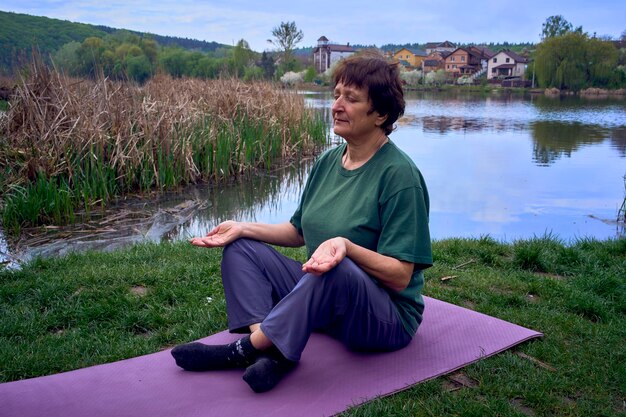Avoid Burnout: Self-Care Strategies for US Caregivers

Avoid burnout by implementing self-care strategies such as setting boundaries, seeking support, prioritizing rest, practicing mindfulness, and engaging in enjoyable activities. These proven methods help caregivers in the US maintain their well-being while providing care.
Caregiving, while rewarding, can be incredibly demanding, often leading to burnout. To avoid burnout: 5 proven strategies for caregivers to prioritize self-care must be actively integrated into daily life, ensuring both the caregiver’s well-being and the quality of care provided.
Understanding Caregiver Burnout
Caregiver burnout is a state of emotional, physical, and mental exhaustion caused by prolonged and excessive stress. It occurs when caregivers feel overwhelmed, depleted, and unable to meet the constant demands of their caregiving role. Recognizing the signs of burnout is the first step in addressing it.
What are the Signs of Caregiver Burnout?
Identifying caregiver burnout early can help prevent more severe consequences. Keep an eye out for these common symptoms:
- Persistent fatigue and exhaustion, even after rest.
- Feelings of sadness, hopelessness, or helplessness.
- Changes in sleep patterns, such as insomnia or oversleeping.
Why is Self-Care Important for Caregivers?
Self-care isn’t selfish; it’s essential for caregivers. Taking care of yourself allows you to provide better care for others. It helps you maintain your physical and emotional health, preventing burnout and ensuring you have the energy and patience needed for your caregiving responsibilities.

Understanding caregiver burnout and recognizing its signs is crucial for preventing its negative impact. Prioritizing self-care is not a luxury but a necessity for maintaining your well-being and providing the best possible care.
Strategy 1: Setting Boundaries
Setting boundaries is a crucial strategy for caregivers. It involves establishing clear limits on your time, energy, and emotional involvement. By setting boundaries, you protect yourself from overcommitment and create space for self-care.
Learn to Say “No”
One of the most challenging aspects of setting boundaries is learning to say “no.” Caregivers often feel obligated to fulfill every request, leading to overextension. It’s important to recognize your limits and decline additional commitments when necessary.
Communicate Your Needs Clearly
Effective communication is key to setting boundaries. Clearly express your needs and limitations to family members, friends, and the person you’re caring for. This helps them understand your boundaries and respect your need for self-care.
Setting boundaries is about protecting your well-being and ensuring you can sustain your caregiving role without burning out. By learning to say “no” and communicating your needs, you create a healthier and more balanced caregiving environment.
Strategy 2: Seeking Support
Caregiving can be an isolating experience, so seeking support is essential. Support can come in many forms, including family, friends, support groups, and professional services. Building a support network provides emotional relief, practical assistance, and valuable resources.
Join a Caregiver Support Group
Support groups offer a safe space to share experiences, gain insights, and receive emotional support from others in similar situations. They can provide valuable advice and a sense of community, reducing feelings of isolation.
Consider Respite Care Services
Respite care provides temporary relief for caregivers, allowing you to take a break and recharge. This can range from a few hours of in-home care to a short stay in a care facility. Respite care can significantly reduce stress and prevent burnout.
- Explore local caregiver organizations for respite care options.
- Involve family members and friends in providing respite care.
- Schedule regular respite breaks to maintain your well-being.
Seeking support is a critical strategy for caregivers. Whether through support groups, respite care, or help from family and friends, having a strong network can make a significant difference in managing stress and avoiding burnout. By actively seeking support, you ensure you’re not alone in your caregiving journey.
Strategy 3: Prioritizing Rest
Rest is vital for caregivers to maintain their physical and emotional health. Chronic sleep deprivation and lack of downtime can lead to exhaustion, irritability, and decreased ability to provide effective care. Prioritizing rest involves making sleep a priority and finding moments for relaxation throughout the day.
Establish a Consistent Sleep Routine
Creating a regular sleep schedule can improve the quality of your sleep. Aim to go to bed and wake up at the same time each day, even on weekends. A consistent routine helps regulate your body’s natural sleep-wake cycle.
Incorporate Relaxation Techniques
Relaxation techniques such as deep breathing, meditation, and progressive muscle relaxation can help reduce stress and promote restful sleep. These practices can be incorporated into your daily routine to enhance relaxation and improve sleep quality.

Prioritizing rest is not a luxury but a necessity for caregivers. By establishing a consistent sleep routine and incorporating relaxation techniques, you can significantly improve your well-being and sustain your energy for caregiving responsibilities.
Strategy 4: Practicing Mindfulness
Mindfulness is the practice of being present in the moment, fully engaged in your current experience without judgment. For caregivers, mindfulness can be a powerful tool for managing stress, reducing anxiety, and improving overall well-being. It involves paying attention to your thoughts, feelings, and sensations without getting carried away by them.
Engage in Mindful Breathing Exercises
Mindful breathing involves focusing on your breath, noticing the sensation of each inhale and exhale. This simple practice can help calm your mind and reduce feelings of stress. Try taking a few deep breaths whenever you feel overwhelmed.
Practice Mindful Activities
Engage in activities mindfully, paying full attention to the task at hand. This could be anything from washing dishes to taking a walk. By focusing on the present moment, you can reduce stress and enhance your enjoyment of everyday activities.
- Take a few minutes each day to meditate.
- Practice mindful eating, savoring each bite.
- Engage in mindful walking, paying attention to your surroundings.
Practicing mindfulness can significantly enhance your ability to manage stress and maintain your well-being as a caregiver. By incorporating mindful breathing and activities into your daily routine, you can cultivate a sense of calm and presence, reducing the impact of stress and promoting emotional resilience.
Strategy 5: Engaging in Enjoyable Activities
Engaging in activities you enjoy is essential for maintaining your mental and emotional well-being as a caregiver. When caregiving becomes all-consuming, it’s easy to neglect your own interests and hobbies. Making time for pleasurable activities helps you recharge, reduce stress, and maintain a sense of identity outside of caregiving.
Schedule Regular “Me Time”
Make time for activities you enjoy, even if it’s just for a few minutes each day. This could include reading a book, listening to music, or taking a relaxing bath. Scheduling regular “me time” ensures you prioritize your own needs and recharge your batteries.
Reconnect with Hobbies and Interests
Reignite your passion for hobbies and interests you may have set aside due to caregiving responsibilities. Whether it’s painting, gardening, or playing a musical instrument, reconnecting with your hobbies can bring joy and fulfillment back into your life.
Engaging in enjoyable activities is a vital component of self-care for caregivers. By scheduling regular “me time” and reconnecting with hobbies and interests, you can maintain your mental and emotional well-being, reducing stress and enhancing your overall quality of life. Remember, taking care of yourself allows you to provide better care for others.
| Key Point | Brief Description |
|---|---|
| ⏰ Set Boundaries | Establish limits to protect your energy and time. |
| 🤝 Seek Support | Join support groups and use respite care. |
| 😴 Prioritize Rest | Maintain a consistent sleep routine. |
| 🧘 Mindfulness | Practice mindful breathing and activities. |
Frequently Asked Questions
▼
Caregiver burnout is a state of physical, emotional, and mental exhaustion that occurs when caregivers are overwhelmed by the demands of their role. It can lead to decreased ability to provide care.
▼
Setting boundaries allows caregivers to protect their time and energy, preventing overcommitment and creating space for self-care activities, which is essential for well-being.
▼
Seeking support reduces feelings of isolation, offers emotional relief, and provides practical assistance. Support groups, respite care, and help from family can significantly decrease stress.
▼
Strategies include establishing a consistent sleep routine, incorporating relaxation techniques, and ensuring you get enough sleep each night. Proper rest improves overall health and energy levels.
▼
Mindfulness helps caregivers manage stress, reduce anxiety, and improve overall well-being by focusing on the present moment. Practices like mindful breathing can calm the mind and promote emotional resilience.
Conclusion
In conclusion, avoid burnout: 5 proven strategies for caregivers to prioritize self-care serve as essential tools for maintaining well-being and providing effective care. By implementing these strategies, caregivers can enhance their quality of life and sustain their important responsibilities.





